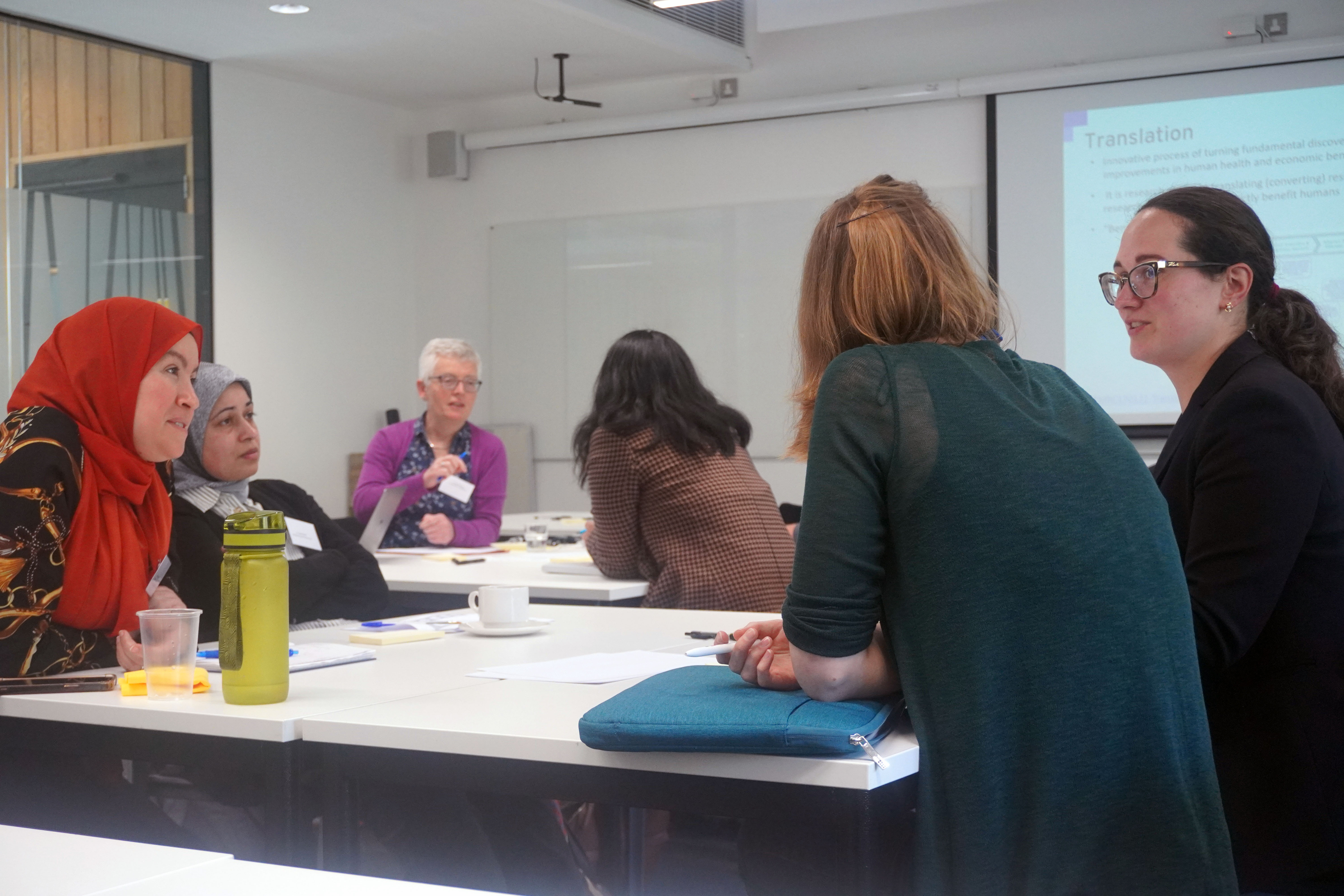This was what ECRs found out when they attended a workshop led by Michelle Garrett (lead for the Medical Research Council IAA) and Tobias von de Haar (lead for the Biotechnology and Biological Sciences IAA) on Wednesday 3 May.
The University of Kent is among only 50 UK universities to have secured funding from UKRI’s Impact Acceleration Account (IAA) scheme. The funding will enable researchers across large parts of the University to be supported to achieve even greater real-world impact. Our IAA opportunities are open to researchers across all divisions and interdisciplinary collaborations are encouraged.
There are two types of Medical Research Council IAA funding that ECRs can benefit from:
- A Strategic Fund of up to £50,00 per project for which the current round has a deadline of 12 June; and
- A Rapid Response Fund, through which researchers can apply for up to £5,000 at any time to initiate or strengthen engagement with other stakeholders, deliver consortia-building activities or use for training purposes.
The Biotechnology and Biological Sciences Research Council (BBSRC) IAA funds innovation projects in BBSRC remit, which is defined as research on “plants, microbes, animals (including humans), and tools and technology underpinning biological research”. The BBSRC IAA offers seed corn funding of up to £10,000 per project, which can be used to fund consumables, researcher salaries or other directly incurred costs.
With £50,000 of £100,000 in the current MRC IAA strategic funding round ringfenced for early career researchers, the workshop provided ECRs with the opportunity to ask questions about the application process and consider how they might use the funds to accelerate their research.
A key requirement of this funding is for projects to have external stakeholder involvement. At the workshop, Royal Society Entrepreneur in Residence, Dr Barrie Rooney, provided insight on the diverse range of sectors that academic research can be applicable to, and how to reach out to the different types of stakeholders within them. Her top recommendations for building a relationship with external stakeholders are:
- Communicate clearly
- Consider in advance whether your research is confidential or not, but keep in mind that you can have an initial meeting without disclosing details. Kent’s Commercialisation Team are able to advise on this.
- Be proactive
- Make use of the research and innovation support within your Division and Research and Innovation Services. The Business Relationships Team is dedicated to matching industry needs to academic expertise and may already know of stakeholders who would be interested in working with you.
- Discuss feasibility studies
- Get some seed funding
- Be aware of what they want, as well as what you need
ECRs who attended the workshop also heard from Professor Dan Mulvihill about his experiences of applying for funding in the first round of the BBSRC IAA. He and his team were awarded funding to work with Fujifilm Diosynth Biotechnologies to functionalise recombinant vesicles in bacterial cells, a technology which can be used to make protein-based therapeutics and diagnostic devices faster and more efficiently.
To find out more about the IAAs and how to apply, visit the IAA page on the RIS Intranet.

